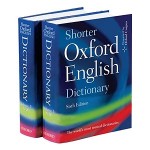 Guest blog from Rachel Williams, professional copywriter.
Guest blog from Rachel Williams, professional copywriter.
Last week I walked into the office at my son’s school and all fingers pointed at me, and one of the staff declared: “she’ll know, she’s a writer!” (Well it’s better than being told I’ve forgotten the lunch money again!) Three people were debating the use of ‘practice’ and ‘practise’ within a letter that was about to be sent out to parents, and no one could quite agree what would be correct*. Talk about great timing – not!
Because even as a writer I don’t necessarily have all the answers to the peculiarities of the English language, and, I have to admit, it stumped me too for a moment and I had to rationalise it in my head before explaining the rule – without losing face!
Sticking with the school theme, it’s interesting to see how my children are attempting to get to grips with our written language. My youngest is learning to read and notices that ‘lion’ and ‘lying’ sound very similar yet look so different. My eldest, meanwhile, is infuriated by seemingly ever-changing goalposts – how the heck is he meant to know that you don’t ‘poor’ water or that ‘rite’ is not the ‘right’ way to spell ‘write’ in every instance!
It’s making me realise just how tricky our language can be to learn and use well. Which is why I thought it might be useful to mention a few resources that can help with writing. For me, you can’t beat a good dictionary and thesaurus, and I still like being able to turn physical pages, notice and explore words other than the one I’m looking for. But there are also some excellent online dictionaries – Oxford Dictionaries and Cambridge Dictionaries Online are the ones that I trust most. If you want full use of the Oxford site you’ll need to subscribe (the free resource is pretty comprehensive though), but the Cambridge site is free – both offer really good resources that go beyond the realms of a traditional dictionary, with all kinds of practical advice on grammar and punctuation, and Cambridge includes a section on ‘Business English’ that can be useful.
If you want to improve your writing skills generally, take a look at Plain English. Alongside their training courses, which include good value online courses, you can download some really good free guides – from writing a business email to the basics of using hyphens and apostrophes.
And if you’re interested in finding out more about punctuation, its use and abuse, then I highly recommend you grab yourself a copy of ‘Eats, Shoots and Leaves’ by Lynne Truss. It’s an entertaining read (really!) and a useful guide to have to hand.
How do you get through the minefield of spelling, punctuation and grammar? Do you have any useful tips to share?
*The correct spelling is determined by whether you are using the word as a noun or verb. So if you were unwell you would visit your doctor’s practice, but if you were a doctor you would be practising medicine.
